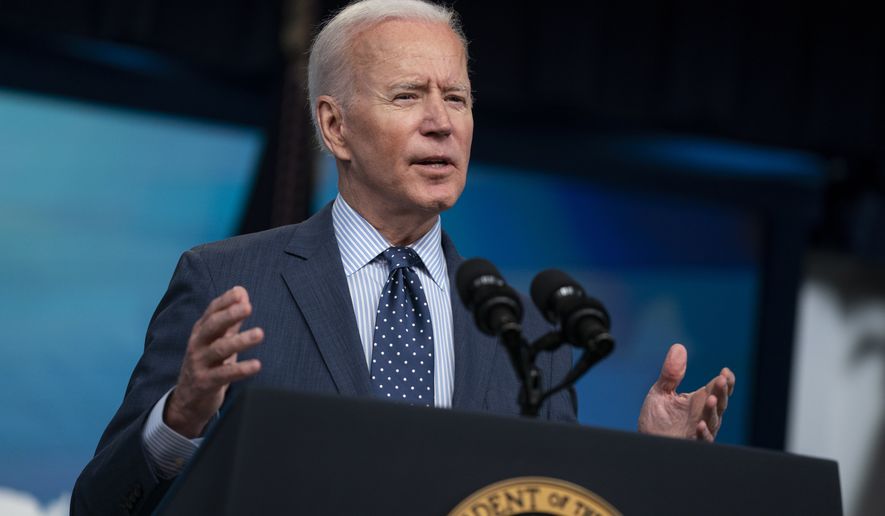The White House said Friday that Senate Republicans’ “current offer” in negotiations over a massive infrastructure package isn’t good enough for President Biden.
Press secretary Jen Psaki said Sen. Shelley Moore Capito of West Virginia on Friday presented a new offer to Mr. Biden that would boost infrastructure spending by about $50 billion.
“The president expressed his gratitude for her effort and goodwill, but also indicated that the current offer did not meet his objectives to grow the economy, tackle the climate crisis, and create new jobs,” Ms. Psaki said.
Mr. Biden and Ms. Capito, Senate Republicans’ chief negotiator in the ongoing talks, plan to speak again Monday.
“He indicated to Sen. Capito that he would continue to engage a number of senators in both parties in the hopes of achieving a more substantial package,” Ms. Psaki said.
Ms. Capito’s office had confirmed that Mr. Biden and the senator would speak again on Monday. The two also spoke Wednesday, and the two sides have been trading offers in recent weeks.
The semi-polite, curt readouts of the Friday call indicate that they’re not all that close to a breakthrough.
Mr. Biden also spoke Friday with House Transportation Committee Chairman Peter DeFazio, Oregon Democrat.
Mr. Biden and Mr. DeFazio “agreed on the benefits of continued engagement with Democratic and Republican senators as the House works on infrastructure advances this coming week,” Ms. Psaki said.
The administration had indicated it wanted to see a clear direction on whether the bipartisan talks can bear fruit by Monday.
The White House had agreed to come down from Mr. Biden’s original $2.3 trillion infrastructure proposal in one of its latest offers. Ms. Psaki declined to say this week whether the president could accept a package with a price tag of less than $1 trillion.
Senate Republicans had announced a $928 billion proposal in their latest public counter-offer to the White House, up from an earlier $568 billion ante.
Republicans are unlikely to embrace Mr. Biden’s latest gambit to impose a minimum 15% tax on corporations, apparently in lieu of his proposed increase to the broader U.S. corporate tax rate from the current 21% to 28%, to pay for some of the spending.
Liberals have become impatient as Mr. Biden tries to strike a bipartisan deal, but it’s not clear if Democrats have the votes to muscle through a package on their own.
“When the GOP passed legislation to provide a $1 trillion tax break to corporations & the 1% without a single Democratic vote, I didn’t hear my Republican colleagues say, ‘Wait. It has to be bipartisan,’” Senate Budget Committee Chairman Bernard Sanders of Vermont said on Twitter Friday. “Please don’t tell me we can’t use the same tools to help working people.”
Mr. Sanders was referring to congressional Republicans’ leveraging a fast-track budget tool, known as reconciliation, to sidestep a possible filibuster in the Senate and pass the 2017 tax law.
The law lowered the corporate tax rate from 35% to 21% and slashed individual income tax rates across the board. Republicans have repeatedly said they won’t sign off on Mr. Biden’s proposals to reverse parts of the law to fund his $4 trillion-plus domestic agenda.
Democrats used the same tool to muscle through Mr. Biden’s $1.9 trillion coronavirus relief package in March without a single Republican vote.
As budget committee chairman, Mr. Sanders, a self-described democratic socialist, would help oversee the process if Democrats choose to go that route again.
• David Sherfinski can be reached at dsherfinski@washingtontimes.com.




Please read our comment policy before commenting.